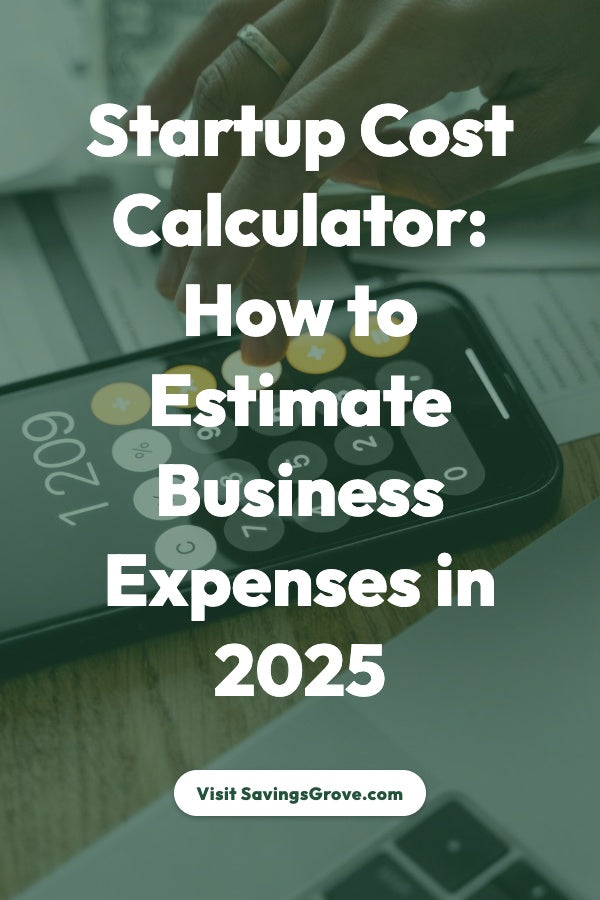
Starting a new business requires careful financial planning. A startup cost calculator helps entrepreneurs accurately estimate initial expenses and ongoing costs.
Startup Cost Calculator: How to Estimate Business Expenses in 2025
This comprehensive guide explores the best calculators and how to use them effectively.
Why Use a Startup Cost Calculator?
Before diving into specific tools, understanding the importance of calculating startup costs is crucial. A proper cost estimation helps secure funding, avoid cash flow problems, and create realistic business plans. According to the U.S. Small Business Administration, poor financial planning is one of the top reasons why businesses fail within their first year.
1. SBA's Startup Cost Calculator
The Small Business Administration offers a free, comprehensive calculator that covers all essential business expenses. This official tool helps estimate both one-time and recurring costs, providing a solid foundation for business planning.
Here's the .pdf template to download.
2. Shopify's Business Cash Flow Calculator
Perfect for e-commerce businesses, Shopify's calculator helps forecast your business cash flow and financial health. For additional financial planning, use their profit margin calculator to optimize your product pricing. Start your online store with Shopify for just $39 per month and get access to these essential planning tools.
3. SCORE's Startup Expenses Calculator
SCORE, a nonprofit partner of the SBA, provides a detailed Excel-based calculator that helps break down costs into categories like legal fees, insurance, and equipment. It's particularly useful for service-based businesses.
Here's the excel template to download.
Essential Cost Categories to Consider
- One-time costs (licenses, permits, equipment)
- Fixed costs (rent, utilities, insurance)
- Variable costs (inventory, shipping, marketing)
- Employee costs (salaries, benefits, training)
- Technology costs (software, hardware, maintenance)
Tips for Accurate Cost Estimation
To ensure your calculations are realistic, consider these expert tips:
- Research industry-specific costs thoroughly
- Add a 10-15% buffer for unexpected expenses
- Consider regional cost variations
- Update estimates quarterly
For more detailed guidance on starting specific types of businesses, check out our guides on how to start a coffee shop or launching a cleaning business. If you're interested in online ventures, explore our article about low-cost online business ideas.
Final Words
A startup cost calculator is an invaluable tool for business planning. By taking the time to carefully estimate and plan for all potential expenses, you'll be better positioned for success. Remember to regularly review and adjust your calculations as your business plan evolves.
Related Articles
Frequently Asked Questions About Startup Cost Calculators
How accurate are startup cost calculators?
Startup cost calculators are generally 80-90% accurate when used with proper research and realistic inputs. Their accuracy depends on the quality of information provided and regular updates to reflect market conditions.
What should be included in a startup cost calculation?
A comprehensive startup cost calculation should include one-time costs (licenses, equipment, deposits), fixed costs (rent, salaries, insurance), variable costs (inventory, utilities), marketing expenses, and a contingency fund of 10-15% for unexpected expenses.
How often should I update my startup cost estimates?
It's recommended to update startup cost estimates at least quarterly during the planning phase, and monthly once the business is operational. Regular updates help account for market changes, inflation, and newly identified expenses.
Do I need different calculators for different types of businesses?
While general startup calculators can work for most businesses, industry-specific calculators often provide more accurate estimates by including costs unique to your business type. For example, e-commerce businesses might need different calculations than brick-and-mortar stores.

